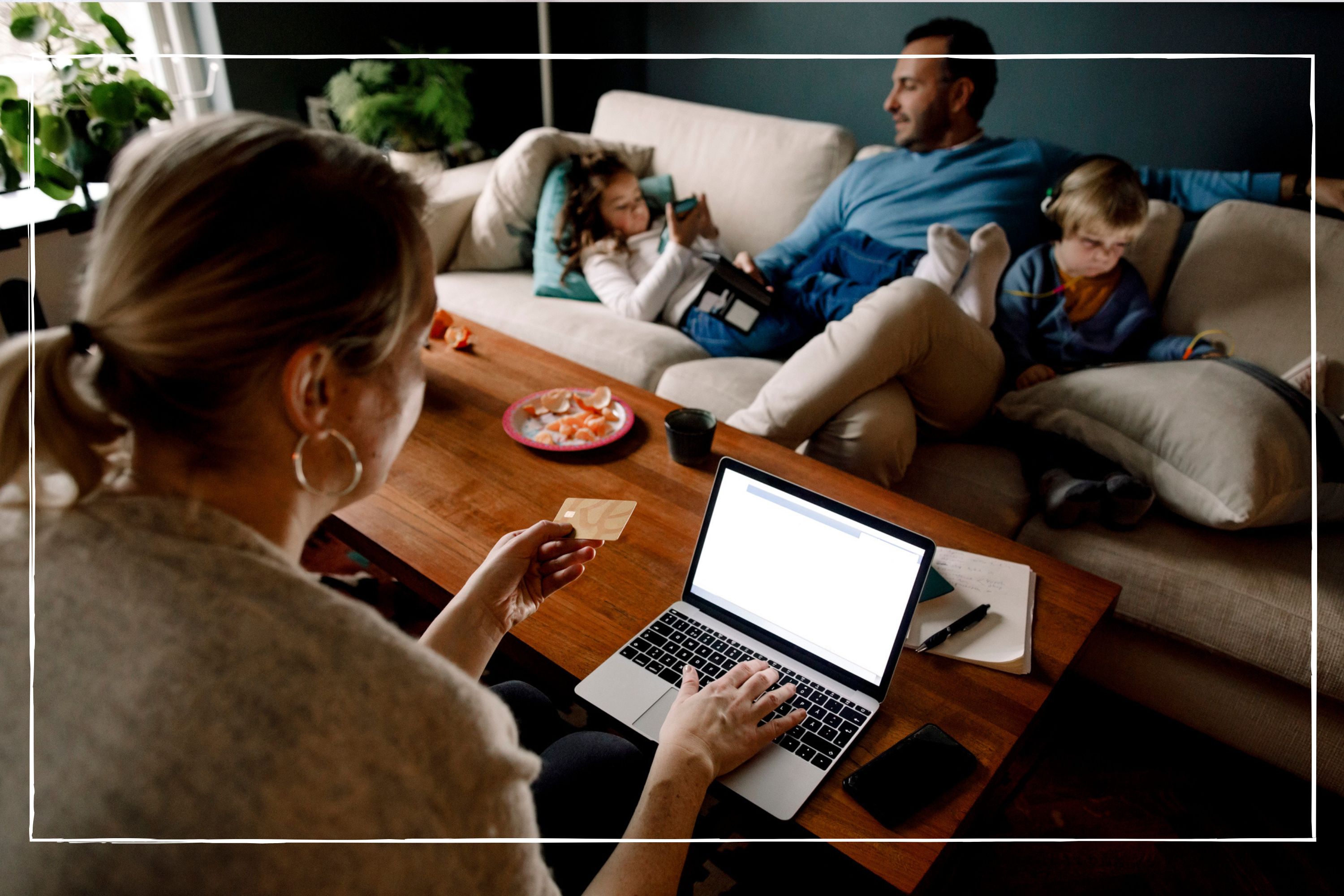
This article has been updated to reflect the latest interest rate announcement from the Bank of England
They are a hot topic at the moment, but what are interest rates and how do they affect your money?
Interest is the cost of borrowing money or the reward for saving money, and right now rates are going up to combat soaring inflation. The rise is bad news for most people, but good news for some.
Nationwide Building Society senior economist Andrew Harvey explains: “When people talk about interest rates, they usually mean the interest rate set by the Bank of England, which is known as the ‘bank rate’. In the news, it’s sometimes referred to as the ‘base rate’.”
The base rate has a big impact on the interest rate you pay on your mortgage and any debts you need to pay off, and how much you earn on any money you save.
Even a small change in interest rates can have a big impact on your financial situation.
What are interest rates and how do they work?
Interest rates can be one of two things - either a cost of borrowing money or a reward for saving money. If you are borrowing money, the interest rate is how much you will have to pay in fees for borrowing your chosen amount. If you are saving money, then interest rate is a reward for saving. When borrowing money, you pay interest. When saving money, you earn interest.
You’ll see interest rates stated on credit products such as mortgages, loans, credit cards, and overdrafts. You’ll also see interest rates on savings accounts and some types of investments.
Parenting advice, hot topics, best buys and family finance tips delivered straight to your inbox.
Interest rates on loans and mortgages are typically calculated as an annual percentage rate (APR). The APR takes into account the interest rate and any additional charges of a credit offer.
Interest rates on savings are normally expressed as an Annual Equivalent Rate (AER). The AER shows how much interest you’ll earn during a year and takes into account compound interest (when you earn interest on both the money you save and the interest you earn), bonuses and any charges.
APRs and AERs are designed to make it easier to compare different credit or savings products. The higher the APR on a loan, the more expensive the debt will be. The higher the AER on your savings, the more money you will earn on your cash.
While your lender will set their own interest rates, they will be influenced by the base rate that is set by the Bank of England.
What is the Bank of England base rate?
The base rate (or ‘bank rate’) is the interest rate that banks and lenders pay when they borrow money from the Bank of England and has risen from 5% to 5.25%. The base rate influences how much interest financial firms charge their customers for credit products or pay on savings accounts.
The Bank of England’s Monetary Policy Committee (MPC) meets eight times a year to set the base rate. However, it can change it at other times too – it was dropped to 0.1% at an emergency meeting when the pandemic hit in March 2020, for example.
When the base rate goes up, the cost of borrowing goes up. In theory, when the base rate goes down, borrowing money gets cheaper.
“If the bank rate changes, then banks and building societies normally change their interest rates on savings and borrowing,” explains Nationwide's Andrew Harvey, “How bank rate affects you partly depends on if you are borrowing or saving money. If rates increase and you have a mortgage or loan, your interest payments may increase. But if you have savings, you may be paid more interest on your deposits.”
Why are interest rates going up and how high could they go?
The Bank of England is increasing the base rate in an attempt to curb inflation. In theory, inflation and interest rates have an ‘inverse’ relationship, which means when one goes up, the other comes down. With inflation at a 40-year high amid rising food prices and sky-high energy costs, interest rates are being raised to try and curb how fast prices are rising.
The Bank of England base rate now sits at 5.25%. The base rate was hiked in December 2021 and has increased pretty much every month in 2022 and 2023 so far, which means the bank rate is now at its highest for 15 years. The base rate sat at an all-time low of 0.1% between March 2020 and December 2021 during the Covid-19 pandemic.
When interest rates go down, there’s an increase in borrowing (because it’s cheaper). This means people have more money to spend, subsequently causing inflation to rise.
But if interest rates rise, people borrow and spend less (because it is more expensive to borrow), and try to save more (because the reward for saving is greater). As demand for goods and services falls, this should have a knock-on effect on prices by preventing costs from rising (for example, shops might lower prices to encourage sales) and inflation should fall.
Experts predict that the base rate could rise again during 2023. So, borrowers will pay more on loans and mortgages, but savers will earn more on their savings.
Although this might sound like a high rate, historically, it is still relatively low. The base rate hit nearly 15% in 1989 and it was consistently over 10% between July 1988 and May 1992.
What do rising interest rates mean for my family budget?
Rising interest rates mean it will cost more to borrow money – especially to buy a home. If you already have a mortgage, your payments could go up.
Mark Harris , chief executive of SPF Private Clients, a mortgage broker and financial adviser, says: “Borrowers on variable rate mortgages, including discounted variable rates, base rate trackers and standard variable rates, will see their monthly mortgage payments rise if the Bank of England raises the base rate. The increase may be by the same amount as the base rate rise, or more or less, depending on the mortgage.
“Borrowers on fixed rate mortgages will see no increase in their monthly payments as they are protected from rate rises for the length of the fix.”
However, anyone looking to take out a new fixed rate mortgage will find that it’s more expensive than before.
Rising interest rates are much better news for people with savings, as you’ll be able to earn more interest. Savings marketplace Raisin.co.uk's savings expert Kevin Mountford says: “Rising interest rates are always good news for savers, particularly as the interest rate environment over the past two years has been stark in contrast to cheaper mortgage rates and accessibility to cheaper lending.
“If you already have a nest egg of savings, move them to a higher interest account now. Over £25 billion still sits in low to zero interest rate accounts, and while rates are high – now is the time to strike.”
How can I protect my family's finances from rising interest rates?
There are two main things you can do to prepare for rising interest rates: pay off debts and increase your savings if you can.
Higher interest rates mean that any payments due on credit cards and loans will become more expensive. So, if you have any spare cash, you should prioritise paying off these debts before rates increase any further. It might also be worth looking into ways to earn extra money to help pay of your debts more quickly.
If you’re on a variable rate mortgage, your payments will increase when the base rate increases. Look at your household budget and work out how you will afford the increase, or investigate switching to a fixed rate mortgage. If you're new to budgeting, follow these tips to get started planning your household budget.
You can normally reserve fixed rate mortgages up to six months ahead so it may be possible to lock in a low rate now, before the next rate rise.
Things are a lot better for savers when interest rates rise – the rate you earn on cash savings is likely to go up. If you haven’t moved your savings for a while, look around for a high interest rate and move your money for better returns.
If you want to make your money work harder for your family, make sure you avoid these money mistakes.

Emma Lunn is a multi-award-winning journalist who specialises in personal finance and consumer issues. With more than 18 years of experience in personal finance, Emma has covered topics including all aspects of energy - from the energy price cap to prepayment meter tricks, as well as mortgages, banking, debt, budgeting, broadband, pensions and investments. Emma’s one of the most prolific freelance personal finance journalists with a back catalogue of work in newspapers such as The Guardian, The Independent, The Daily Telegraph, the Mail on Sunday and the Mirror.
